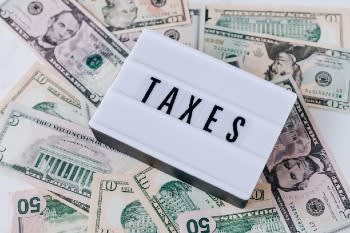Why Has My Property Tax Bill Increased, Again?
Nov. 18, 2020
According to the Office of the Cook County Clerk, the four most impactful factors which affect whether or not individual property tax bills will increase or decrease are:
The Amount of Property Tax Requested by The Taxing Districts (Property Tax Levies)
 Property tax levies are budgeted to fund local services like schools and community health centers. Taxing districts are units of local government such as school districts, park districts, and municipalities that provide services and are authorized to levy taxes on properties within their geographic boundaries to pay for those services. In Cook County, the majority of property taxes go to fund school districts. Before a Taxing District receives property tax revenue, the district must pass a levy ordinance and file it with the County Clerk, which indicates how much revenue the district seeks to collect from property taxes.
Property tax levies are budgeted to fund local services like schools and community health centers. Taxing districts are units of local government such as school districts, park districts, and municipalities that provide services and are authorized to levy taxes on properties within their geographic boundaries to pay for those services. In Cook County, the majority of property taxes go to fund school districts. Before a Taxing District receives property tax revenue, the district must pass a levy ordinance and file it with the County Clerk, which indicates how much revenue the district seeks to collect from property taxes.
Before a Taxing District receives property tax revenue, the district must pass a levy ordinance and file it with the County Clerk, which indicates how much revenue the district seeks to collect from property taxes.
After the Clerk reviews the levy, staff confirms the details of the ordinance with the submitting district. The Clerk calculates the rates needed to generate the requested revenue based on taxable value in accordance with state law, such as the Tax Cap Law.
The Change in The Value of A Property Relative to Other Properties Within the Same Districts (Property Assessment)
The job of the Cook County Assessor’s Office is to calculate a fair market value for your property. In calculating fair market value for residential properties, they consider what the fair cash value would be for your property if it had sold recently in its reassessment year.
According to the Cook County Assessor, his estimate of your home's fair market value is based on two things: your home's characteristics, and patterns between how other homes' characteristics affected their sale values. They use recent sales of homes similar to yours, in and around your neighborhood, to estimate your home’s value. Homes more similar to yours, or closer geographically to yours, make more of a difference in their calculation than other homes.
The Change in The State-Issued Equalization Factor Compared to The Prior Year (from 2.9109 for 2018 to 2.9160 for 2019)
The Illinois Department of Revenue is required by law to calculate the state equalization factor to achieve uniform property assessment throughout the state.
The Department determines the equalization factor for each county by comparing, over a three-year period, the actual selling price of individual properties to the assessed value placed on those properties by the county assessor. If the median level of assessment for all property in the county varies from the 33 1/3 percent level required by law, an equalization factor is assigned to bring assessments to the legally mandated level.
The three-year average level of assessments (weighted by class) for Cook County property was 11.43 percent. The Department calculated the multiplier to bring the average level of assessments to the required 33 1/3 percent level by dividing Cook County's three-year average of 11.43 into 33.33.
Property Tax Exemptions
For example, if a property received a Homeowner Exemption one year, but did not receive it the following year, the final taxable value of that property could be up to 10,000 higher without the exemption.
To verify if you are receiving all of the exemptions you qualify for, go to CookCountyAssessor.com to view a list of the exemptions available and the qualifications to apply.
